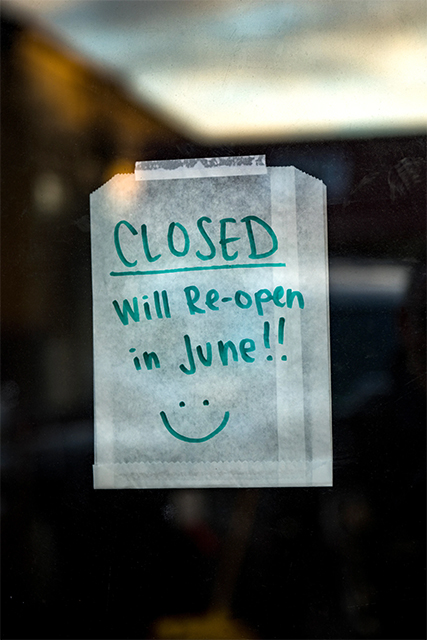How did the coronavirus change the way we drink coffee?

Απο τη βίαιη αλλαγή της καθημερινότητας μας λόγω του Covid-19, ο καφές δε θα μπορούσε να μείνει αλώβητος.
Recently, a year has passed since the day the World Health Organization declared Covid-19 a "pandemic", but also a year with drastic restrictions, which transformed our lives from one moment to the next. As the spread of Covid-19, as well as the measures to deal with it internationally, have affected human daily life more than anything else in recent history, it is no exaggeration to say that there is no aspect of our daily life that has survived this adventure.
Coffee is a key element of human life, as it is the second most popular beverage in the world after water. Even more important is the fact that each country develops its own "coffee culture": a network of attitudes that has to do with gastronomy, social and political life, economy, climate, temperament and habits of each people. The coronavirus pandemic brutally mutated this very web of behaviors, with lightning speed.
We try to map out exactly these changes in the coffee market and industry - but also in our daily lives as coffee drinkers, as these are clearly interconnected situations.
How did the coronavirus change the way we drink coffee?

- Vertical increase in home coffee consumption: Coffee is a beverage that is found in many aspects of our daily lives. For most, it belongs to the daily ritual of waking up or relaxing in the afternoon, but an important aspect has to do with sociability and interpersonal relationships. As catering is one of the sectors hardest hit by the Covid-19 pandemic, the social aspect of coffee, and therefore its consumption outside the home, has declined sharply. At the same time, due to travel restrictions and teleworking, most people spend significantly more time of their day at home. Coffee consumption during the pandemic did not decrease, but the accompanying habitual framework changed dramatically: domestic coffee consumption increased, as did our (forced) stay at home.
Rise in delivery and take-away: For many catering businesses, focus on take-away and delivery was perhaps the only way to survive. In recent months, we have even seen fine dining restaurants resorting to the delivery solution, proving that this option was a one-way street for many entrepreneurs. In this context, several cafes added delivery options where they did not previously exist, while take-away also tried to maintain market share. In the context of the physical movement, a coffee in the hand continued to be a favorite habit, and more than that: an epitome of "normality", a reminder of our pre-pandemic lifestyle.
Increased demand for home appliances and barista equipment: Given the stay at home and no other activities to fill the hours of the day, there are many who decided to explore their coffee in depth. Initially, in the first months of the pandemic, the growing demand for coffee machines came as a logical consequence of increased home consumption, as more and more people sought ways to enjoy their coffee in the safety of their own home. Then, many decided to go one step further, unfolding their creativity over a cup, perfecting their extracts, trying out new recipes and experimenting as budding home baristas, which led to an increased demand for tools, accessories and related equipment. When we leave the pandemic behind us, a new audience for coffee will be formed, more informed, more demanding and with a deeper knowledge of the subject.
Increased demand for delicatessen and specialty coffees: This trend is related both to the previous conclusion and to the general condition that has been created. Although a significant part of the world of work is facing an acute economic problem, the closure of the market and the lack of outlets has created conditions for the demand of delicatessen products, for home enjoyment. In this context, the percentage of coffee shoppers looking for specialty, rare and luxurious coffees has shown a small but real increase, something that may continue after the end of this adventure.
Capsule coffee has gained ground: Initially, the capsule industry was shaken by teleworking, as offices and workplaces are privileged fields for coffee capsules, and the implementation of teleworking hit the industry as it was next. However, the subsequent increase in home consumption balanced the situation, as capsule coffee starred as a solution for those who wanted to not be deprived of their daily coffee at home, without going into the process of finding more complex solutions.
Coffee, like the entire catering industry, as well as the network of social relations that defines and represents it, has been hit hard by both the pandemic and the measures to deal with it. However, all the bad things end: after the end of the nightmare, the coffee will become what it deserves again: the "glue" that unites friends, couples, colleagues, friends, classmates, relatives. We will all be at the same table again, "for a coffee".








